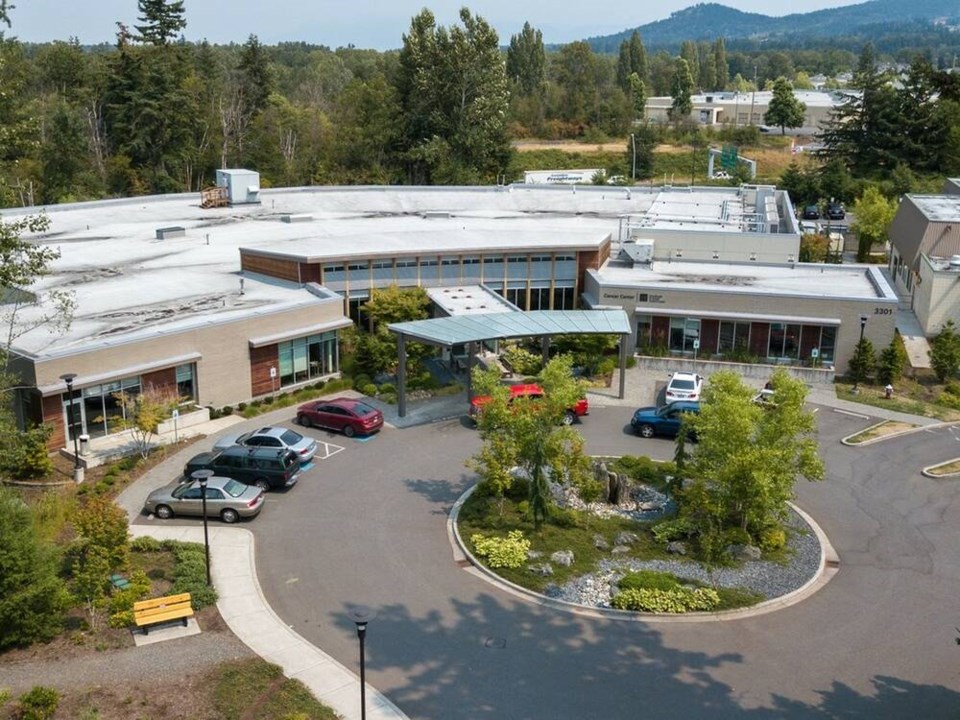B.C. cancer patients have started arriving at one of two U.S. clinics this week for radiation therapy, according to the lead oncologist at the North Cascade Cancer Center in Bellingham.
“We have started to see patients under this program already this week,” said Dr. Alexei Polishchuk, one of the three full-time radiation oncologists who runs the clinic. “So it seems to be working very efficiently.”
Polishchuk did not say how many patients arrived or how many more patients are expecting in the coming days.
The patients went through their initial consultation, he said, and will return in 10 days to two weeks to start radiation therapy. That means patients will likely return home and make a second trip to Bellingham to start treatment.
Last month, B.C. Health Minister Adrian Dix announced that starting May 29, about 20 per cent of those in B.C. needing radiation therapy will be eligible for treatment at either the PeaceHealth St. Joseph Cancer Center or the North Cascade Cancer Center.
The hope was that sending up to 50 prostate cancer and breast cancer patients a week, or an estimated 4,800 over the next two years, to the U.S. would address the backlog here in B.C., which has the longest cancer waiting times in the country.
The Ministry of Health said as of June 4, 58 cancer patients had been identified as eligible to receive treatment in the U.S. Of those, 13 had turned down the offer either because they wanted to continue care in B.C. or were not able to cross the border or had a companion who could not.
The Ministry of Health did not provide updated figures Thursday on how many B.C. cancer patients travelled to Bellingham this week.
The province is footing the bill for travel and accommodation costs for the patients and one support person to join them.
The North Cascade Cancer Center, which has been operating since April of 2022, has one linear accelerator — the equipment that delivers the radiation therapy — that can treat between 45 and 50 patients a day, said Polishchuk, who grew up in Vancouver but completed medical school in the U.S. and has been practising medicine in Bellingham since 2016. The clinic currently sees 30 to 35 patients a day, which leaves capacity to see an additional 15 B.C. patients a day, he said.
Starting May 15, B.C. Cancer oncologists in the six cancer centres across the province began informing their patients about the option to receive radiation therapy treatment in Bellingham. Referrals for clinically appropriate candidates are sent to the B.C. Cancer support team.
B.C. Cancer’s chief medical officer, Dr. Kim Nguyen Chi, told Postmedia News in May the agency is targeting people who would have five consecutive days of treatment, thus limiting the time they’re away from home.
Camille Currie, founder of health advocacy network B.C. Health Care Matters and the B.C. Green candidate for the Langford-Juan de Fuca byelection, said she’s not surprised few people have volunteered to travel to Bellingham.
“I think that speaks to the concerns that I myself raised and that other physicians raised, being that cancer is an incredibly difficult thing to go through. Radiation treatment is not a walk in the park,” said Currie, who watched two family members go through treatment.
“To go through something like that without having a support system around you, I think can increase the fear that people have about even being able to survive the treatment.”
Polishchuk said he knows radiation therapy is a stressful experience, which is why he and his fellow oncologists are doing their best to make B.C. patients feel comfortable.
“All of those patients actually will have seen a radiation oncologist in B.C. before they’re referred here, so already there’s a preliminary discussion and a preliminary plan that has taken place,” he said. “So typically these patients will know what to expect and we do our best to basically implement the plan that has been proposed for them.”
A recent Leger poll for Postmedia News found that a large number of British Columbians would consider leaving Canada to get medical care: 39 per cent would definitely or probably consider doing so for a medical procedure.
A further 26 per cent said they were undecided, leaving only 35 per cent who would rule it out.
While only 19 per cent would consider leaving Canada for a cosmetic medical procedure, 23 per cent would consider going abroad for surgery, 25 per cent for a dental procedure and 26 per cent for medical diagnostic work.
Critics of the plan to send patients to the U.S., including the former head of B.C. Cancer, say it’s an admission that the B.C. system has failed to deal with the influx of cancer cases that oncologists have been warning the province about for more than a decade.
It will cost the province three times as much to treat patients in the U.S.: $12,277 for a patient receiving five fractions of radiation therapy compared to $3,854 here in B.C. Those figures do not include travel and accommodation costs, which the province will pay for.
The province has budgeted $39 million a year for the two-year program.
kderosa@postmedia.com



